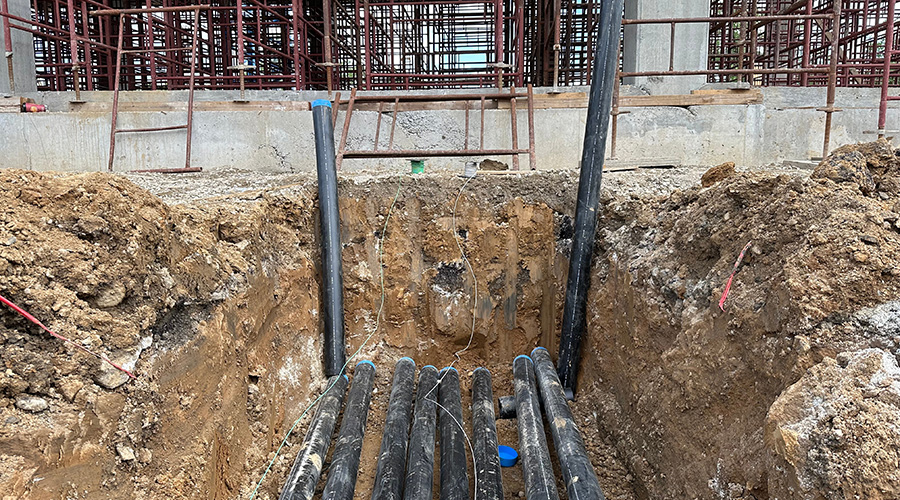How Delphi Selected A Facility Management Service Provider
As its investigation proceeded, Delphi's criteria for selecting a facility management service provider sharpened. The final three candidates showed that they backed up lean strategies with specific processes and concrete plans to achieve results. They explained in detail how they would run the business to implement process improvements in such areas as predictive maintenance, job assignments, standardized work, work-order documentation, training, mechanization, and supply chain management.
In this vein, predictive technologies are crucial to operational readiness, ultimately to the level of overall equipment effectiveness and reliability-centered maintenance. Currently, as foundations for future excellence, Delphi advocates maintenance planning (time-based and condition-based); the use of emerging technologies for reliability monitoring and control; and CMMS for asset and maintenance management. Delphi tested the contractors' plans for these competencies.
The service contractor brings content — expertise, systems, resources, experience. The owner supplies context — needs, priorities, desires, policies, standards and funding limits.. The team's "chemistry" is science, not luck. Alignment is the result of mutual commitment and communication.
Peak Value Procurement
Delphi entered the marketplace by an initial vendor qualification round. Then, candidates submitted technical proposals that included pricing. Delphi's request for proposals was essentially a guideline, so that the competing facility management service contractors had maximum freedom to construct tailored service plans. The proposals documented the service contractors' best thinking, most rigorous capabilities, and most disciplined processes. Four criteria shaped the selection, based on the contractor's performance and plans to:
Measure outcomes (rather than "activities"). Proposers described best-in-class approaches to safety, quality, cost, and value tailored to Delphi's policies, asset profile, working conditions, work requirements, and standards. Proposals addressed site-specific issues and opportunities to improve facilities' performance.
Improve capabilities (rather than "effort"). Based on Delphi's scope, proposers detailed migration plans to improve the capacity and competency of the workforce, with special concern for synergies with Delphi's workforce and with other contractors on site. Delphi gave preference to proposers' capacities to self-perform, without over-reliance on subcontracts that inherently weaken control and accountability.
Improve performance on priorities (rather than "tasks"). Proposers detailed plans for assuring operational reliability for critical facilities, sensitive equipment, and advanced technologies. Preventive maintenance planning and compliance, rapid response protocols, testing, and monitoring techniques were major considerations. Support operations related to safety, quality process development, supervisory and workforce training, labor relations, and minority utilization and development were scrutinized.
Improve communication (rather than "reporting"). Delphi corporate standards mandated baseline monthly reporting of key performance indicators for safety, quality, productivity/volume, cost, and minority engagement. However, peak value management invited deeper analytics related to real-time operations management and continuous improvement. Key performance indicators focused the monthly reviews' discussion on priority opportunities to improve efficiencies and outcomes.
In step one of the proposal evaluations, the two high-cost candidates were excused. In step two, the remaining three proposers defended their processes and plans for driving continuous improvement.
For the final three, the Delphi team conducted multiple customer site visits, introduced by the service contractors, but with significant one-on-one discussions between Delphi and the contractors' customers. This promoted full disclosure and optimized peer-learning opportunities.
These customer site visits validated proposals and plans that Delphi had already ranked. Current customer feedback shaped the final criteria: flexible response to site conditions and customer needs; access to top management as a priority client; and staffing level adjustments based on Delphi's own critique and concerns.
These emerging criteria excited a sense of larger possibilities and potential risks, not least the risk of excessive demands and over-promising within limited resources and funds. The greater risk, however, was to settle for conventional approaches, ignore challenges, hope for the best — and settle for predictable and ultimately disappointing results.
Final Review
At the final decision stage for internal sign-offs, the strongest proposer (though not necessarily the cheapest) was the choice.
After final review and scoring, the contract was awarded. A start date of Jan. 1, 2012, allowed nearly two months for transition and start-up.
Related Topics:









